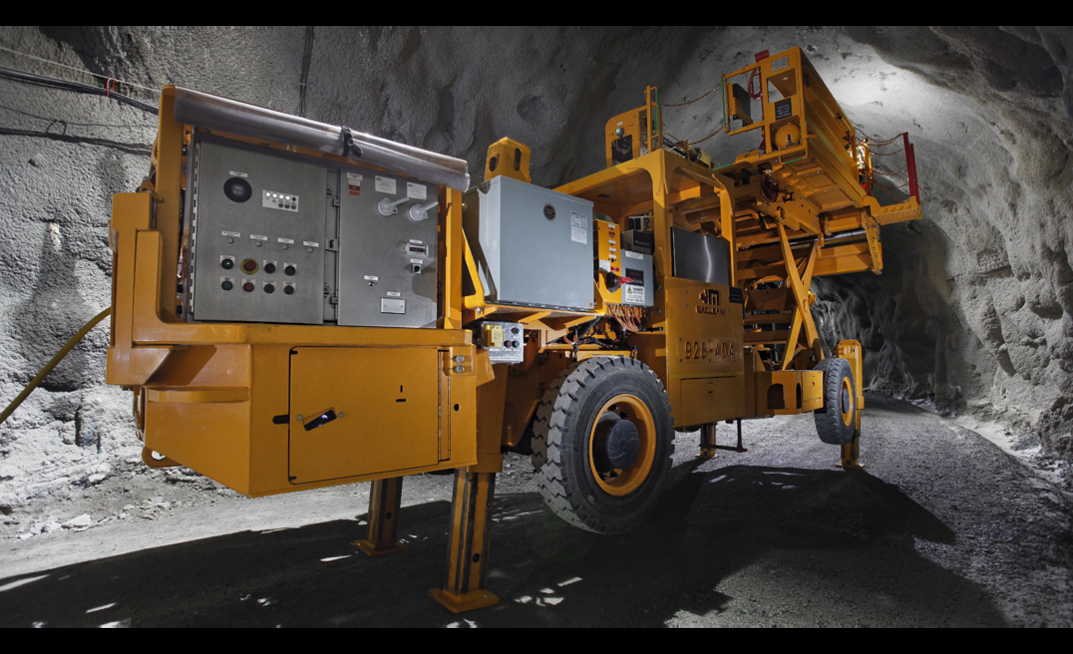Underground mining is at an interesting place right now, with the availability of diesel-free, battery electric equipment in most of the vehicle categories except heavy haulage, with that gap being actively addressed by a number of OEMs and the solution not something to be relegated to the distant future as a theoretical. It's coming, along with fast charge capabilities underground.
So, with stricter air quality regulations looming in Europe for the early 2020s, and a growing shortlist of major all-EV projects lining up for that same time frame in Canada, the US and Europe, the question becomes, how will the next two to three years shape the mining industry's inevitable transition to diesel-free underground operations?
From roadmaps to implementation
The future vision of mining that is broadly shared by major mining companies around the world is that of highly automated and eventually autonomous operations, where the environment is free of diesel particulate and where GHG emissions are reduced, and where total cost of machine ownership is a significant factor in bringing operating costs down, through reduced maintenance costs in particular.
The EV switch in mining is the first of many parallel steps towards this future state, along with autonomous haulage that is already in place in surface mining as well as block cave mines with predictable tramming cycles. And like the progressive rollout of automated (remote control) to autonomous (robotic) solutions, the introduction of battery electric propulsion will be helped along by the necessary step of operators getting the chance to work with EV units first hand.
The increasing introduction of innovative technologies underground requires a mindset change, and this doesn't happen overnight.
A good example of this in the context of EV fleet adoption is the need for opportunity charging to meet duty cycle requirements. Take for instance the scenario of a diesel boom truck that only needs to be filled up every second day. The energy density of that tank of diesel fuel allows the operators to not think about refueling for one of every two shifts. Unfortunately, that density comes with diesel fine particulate emissions, energy wasted as heat and added to the underground environment, and higher planned maintenance requirements and costs.
Emissions-free benefits - right away
This argument that incremental introduction is part of the learning curve for eventual full fleet electrification success, doesn't mean that mining companies aren't getting an immediate benefit from the switch to emissions-free fleets. This list includes lower total cost of machine ownership, additional room for diesel units within existing mine plans and their ventilation requirements/capabilities, and reduced strain on the electrical grid for mines that happen to be at the end of the transmission line. With the EV transition offering up the potential of 50-70% in auxiliary ventilation requirements (the primary ventilation reduction opportunity is typically in the 30-40% range), there is indeed a short-term gain that goes with the much larger, long-term gain of full-fleet electrification and the reduced energy and infrastructure requirements that go with that.
Getting to a different end state - the cleaner, safer, lower cost mine of the future - is going to require at some point that whatever down-the-road roadmap flag we put in the ground, we start doing something, right now, to prepare and support the next generation of workers for the next generation of mining.
The time to start is right now, and for much of the underground fleet, the proven EV options are there to do it.
ABOUT THIS COMPANY
MacLean Engineering
MacLean Engineering designs mining equipment that increases productivity, reduces costs and enhances operator safety by leveraging multi-discipline engineering expertise, hard rock mining knowledge, and custom manufacturing experience.
For more information:
-
Website: www.macleanengineering.com
-
Facebook: @MacLeanMining
-
Twitter: @MacLeanEng


























